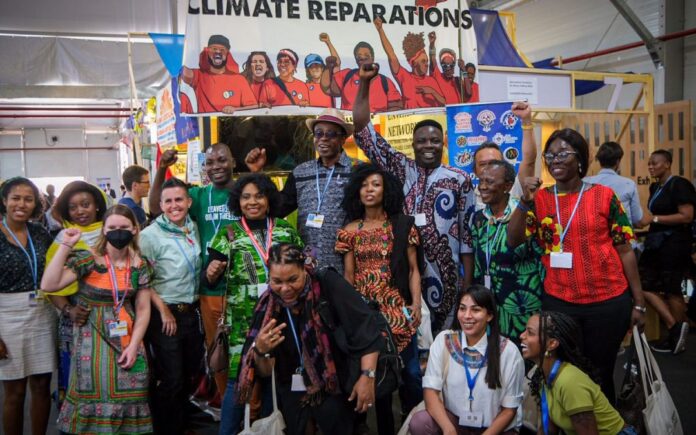In recent discussions at COP28 in Dubai, academics and environmental experts emphasized the pivotal role of comprehensive climate change education, extending even to tertiary levels, as a catalyst for long-term climate solutions. Yasmine Sherif, Director of Education Cannot Wait, a UN Global Fund for Education in emergencies and protracted crises, underscored a critical perspective: the education sector itself is bearing the brunt of climate change.
Impact on Education
During a UN side event on December 8, Sherif articulated that the climate crisis has morphed into an education crisis, especially affecting students, particularly those in Africa. Students across all levels, including higher education, find themselves at the forefront, often being the first and worst impacted by the climate crisis. Climate-related disruptions in various parts of Africa, ranging from erratic weather to floods and landslides, are impeding learning, destroying educational infrastructure, and posing risks to the safety and well-being of both students and teachers.
Education as a Solution
Sherif revealed a stark statistic: more than 52% of children in climate-affected zones in Africa are compelled to stay away from schools due to the impacts of extreme weather events. The UN education expert strongly advocates for the integration of sustainability and climate education into the curricula of all institutions and at all levels. In her interactions with students and youth from Nigeria, South Sudan, the Democratic Republic of the Congo, and Ethiopia, a consistent demand emerges: the empowerment of young people in the climate movement, with education identified as the key to this empowerment.
Advocacy and Funding
In a bid to address these challenges, Sherif launched a compelling appeal for US$150 million to empower teachers and millions of children affected by climate change. She proposes redirecting 5% of global military expenditures towards education and the climate crisis, potentially freeing up US$100 billion annually to tackle climate change.
Youth Empowerment
Dr Precious Moloi-Motsepe, Chancellor of the University of Cape Town, South Africa, reinforces the idea that Africa’s youth will emerge as future climate champions. Acknowledging the anticipated severity of climate change consequences in Africa, she stresses the necessity of aligning the skills and education of the continent’s youth with the impending challenges. Drawing parallels with the transformative influence of youth in the software and digital economy, she highlights the potential for youth ideas and skills to instigate change even in traditional industries.
Capacity Building
Environmental experts emphasize the need for Africa to build capacity in different sectors, including water, infrastructure, energy, and agriculture, to ensure long-term climate resilience and investments. This involves training experts at the university level capable of drafting compelling project proposals to attract funding.
Notably, universities across Africa have already taken strides in climate change education programs. Institutions like the University of Cape Town, Stellenbosch University, University of Venda, Eduardo Mondlane University, Sokoine University of Agriculture, University of Dar es Salaam, and others have initiated comprehensive climate change programs. Cameroon has introduced renewable energy aspects in all state universities.
Holistic Approach
Experts call for a holistic approach to education about climate change. UNESCO, in its Greening Education Partnership program, brings together 81 countries and over 1,100 organizations to address global gaps in climate change education. The initiative aims to adapt curricula, train teachers, rethink schools, and empower communities. Dr Linus Mofor, a senior environmental affairs officer at the African Climate Policy Centre, emphasizes the holistic nature of the climate crisis, spanning across various domains like forests, energy, agriculture, and water.
Global Commitments
The Greening Education Partnership sees commitments from 126 countries to address climate change through education. Sixty out of 81 countries plan to review their curriculum and integrate climate change and biodiversity within the next three years. Seventy out of 81 countries aim to provide training to teachers on climate education issues, highlighting the increasing global recognition of the urgent need to equip learners with the knowledge, skills, attitudes, and behaviors to effectively address the climate crisis.
source name:University World News
source url: Climate change and education: Two sides of the same coin (universityworldnews.com)
















 The African Research (AR) Index is a comprehensive scholarly directory and database focused explicitly on journal publishers that publish and disseminate African research.
The African Research (AR) Index is a comprehensive scholarly directory and database focused explicitly on journal publishers that publish and disseminate African research.

